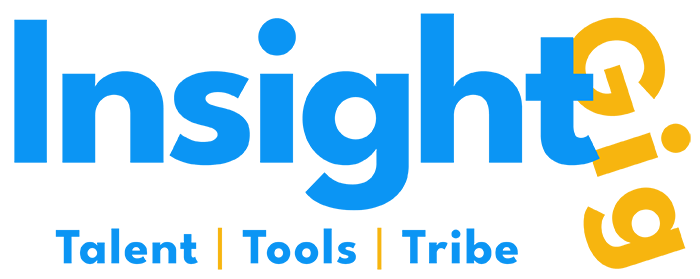
Deepika Goparaju
Market Research & Customer Insights
Being your own boss requires a commitment to delivering quality work consistently.
Tell us about yourself
I graduated with a degree in civil engineering from National Institute of Technology, Warangal. Right after college, I ventured into the professional landscape with a penchant for problem-solving and an analytical mindset.
My trajectory took an intriguing turn as I found myself drawn to the captivating intersection of analytics, technology, and business within the Market Research and Insights industry. What initially attracted me to the Market Research and Insights industry was the opportunity to bridge the gap between raw data and actionable business strategies. I could contribute to informed decision-making and facilitate the growth of businesses. The allure of this industry lies in its ability to connect people with business and that it relies on understanding patterns, deciphering trends, and drawing meaningful insights from data.
Outside of work, I love playing board games and if I am not doing that, I’d be watching all sorts of reality shows on Netflix.
What does it mean for you to work on your own?
After a secure 10 years of career with ZS, I decided it was just the right time to do something else to expand my horizons. My goals were to find something that allows me to – 1) more directly connect to impact (e.g., social sector) OR 2) have a better work-life balance OR 3) work in a stress-free environment.
When I didn’t find an opportunity that would make the exit from ZS worth it on any of the goals I had in mind, I decided to diverge my paths and explore as many roles as possible. Freelancing seemed to be the right way to do it.
Freelancing has been a sweet spot that allows me to accomplish all the goals I had. I have the opportunity to choose my own projects – which means that I am able to diversify in terms of geographies, industries and working techniques. It has given me the opportunities to expand my professional network and foster lasting business connections. I am able to have definite boundaries in terms of the time I commit to my clients and I am no longer in an “always-on” work mode.
How did you find your niche as an Independent Consultant?
Discovering my niche as an Independent Consultant was a journey marked by deliberate choices and a willingness to embrace new challenges.
One pivotal factor in carving out my niche was my foundational experience in a global firm. Working within a globally recognized organization not only equipped me with a comprehensive understanding of industry standards but also instilled in me a commitment to excellence and a knack for delivering results at par with global expectations. This experience serves as a bedrock for my work as a freelancer, allowing me to bring international standards to my projects and enhancing the credibility of my profile.
Another key aspect of finding my niche involved a willingness to step outside my comfort zone. Embracing this mindset enabled me to explore diverse projects and take on assignments that might not have been within my original scope of expertise.
What challenges do you face as an Independent Consultant?
The primary risk in freelancing lies in the fluctuating nature of work availability. Unlike traditional employment where a steady stream of projects or tasks is often assured, freelancers face the constant challenge of securing their next gig. This uncertainty requires a delicate balancing act. On one hand, there is the need to manage workload effectively when opportunities are abundant, ensuring that the quality of work remains high and that burnout is avoided. On the other hand, there’s the crucial task of preparing – both financially and emotionally – for the inevitable downtimes when projects may be scarce.
As an independent contractor, one should also be open to working on their own and carving their own path of growth. This means that you often have to start from scratch, define what growth means to you as a freelancer and move away from the traditional definitions of growth (e.g., promotions, hikes). It’s important to not compare your journey as a freelancer to that of your friends and ex-colleagues from your time in a full-time role as it each comes with its own set of benefits and drawbacks.
Lastly, we also have to figure out how to be compliant with the India tax regulations – takes a bit of time but there are enough resources to guide us.
How do you usually find projects/work from clients?
LinkedIn:
I found LinkedIn to be the most reliable platform to expand my network and generate leads.
- Joined LinkedIn groups that are relevant to me (e.g., Pharma & medical network, Market research)
- Kept a tab on posts with relevant hashtags (e.g., #freelance, #marketresearch). Filtered for any posts in the most recent 6 months and reached out on email / LinkedIn DM asking for opportunities
Freelancer communities / platforms:
- Again, via LinkedIn, I got to know of platforms that connect freelancers to clients
- I didn’t have much success with the more established platforms – never got a response to the proposals I submitted. On the other hand, the up-and-coming platforms such as InsightGig are helpful in finding opportunities. This is likely because they cater to niche clients and their leadership is heavily invested in connecting freelancers to clients.
- If anyone personally reached out regarding a full-time opportunity, I’d ask if they are open to working with me as a contractor. Some of them said yes.
Why did you sign up with InsightGig?
What I first liked about InsightGig is that they are not a “faceless” platform i.e., you are not submitting a proposal and endlessly waiting for a response. Freelancers usually have someone from the team reaching out with a specific opportunity, coordinating the proposal and seeing it through to the end.
Another reason is that InsightGig specializes in the business analytics space. They really understand the skillset that is required to complete a project and hence are able to map projects to freelancers effectively. So, I feel like I am not just taking a shot in the dark when applying for projects via InsightGig.
How did InsightGig solve your challenges?
To the first challenge I mentioned above in terms of managing risk as an independent consultant, I think that InsightGig is unique in the sense that they have a great mix of long-term and short-term assignments. By choosing a mix of projects in terms of hours and length of engagement, we can ensure a level of certainty in planning our pipeline as a freelancer.
How was your overall experience working with InsightGig? And how can the experience be improved?
Tell us your tips on how to succeed as an Independent Consultant?
- Enjoy Your Time and Flexibility: As a freelancer, relish the flexibility that comes with not being tethered to a traditional office. Work from different locations, travel, and seize the opportunity to stay with family and friends in various places. Enjoy the freedom that freelancing affords you.
- Effective Time Management: While the lack of external oversight offers freedom, it also demands self-discipline. Manage your time effectively by setting clear work hours, creating a structured routine, and establishing a dedicated workspace. Being your own boss requires a commitment to delivering quality work consistently. Unlike traditional roles, freelancers don’t have a predefined path. Actively manage your project pipeline to ensure a steady flow of work. Proactively seek new projects, network, and build a reliable client base to sustain your freelance career.
- Foster Deep Relationships: Even as a freelancer, you can cultivate a sense of teamwork. Go beyond project boundaries and build lasting relationships with each client. Cultivate a network of collaborators and mentors who can offer support, advice, and potential future opportunities.
- Continuous Learning: Freelancers often work with diverse clients, exposing them to various industries and skillsets. Leverage this exposure by creating a learning calendar. Identify areas of interest, take relevant courses, and continuously upskill to stay competitive in the ever-evolving freelance landscape.
Join the InsightGig network today
Latest Success Stories

Anshu Mishra

Gomathy L

